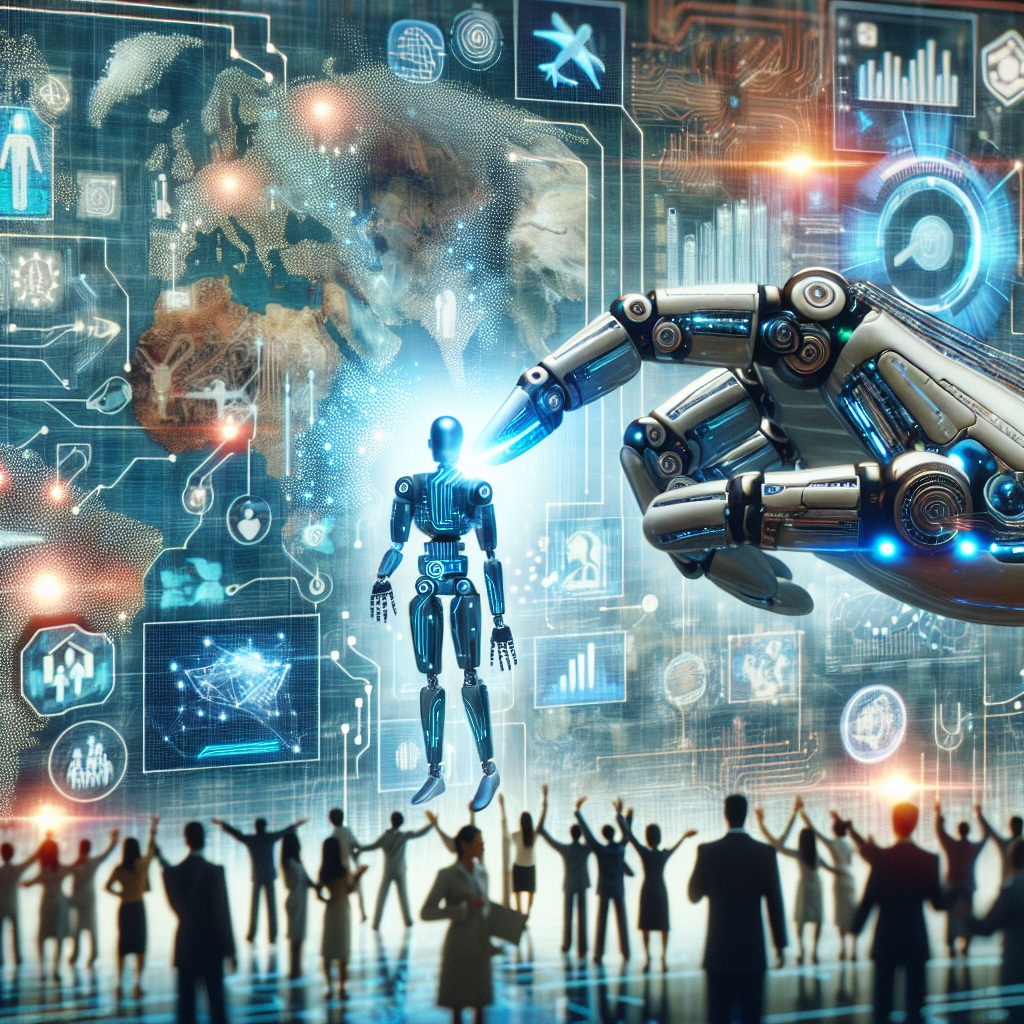The Future of Work: How AI Outsourcing is Changing the Workforce
In recent years, artificial intelligence (AI) has made significant advancements in various industries, including the outsourcing sector. AI technologies are revolutionizing the way companies outsource tasks, leading to a more efficient and streamlined workforce. As AI continues to evolve, its impact on the future of work is becoming increasingly evident. In this article, we will explore how AI outsourcing is changing the workforce and what the future holds for this technology.
AI Outsourcing: A Brief Overview
AI outsourcing refers to the use of artificial intelligence technologies to automate and streamline business processes that are traditionally outsourced to third-party service providers. This can include tasks such as data entry, customer service, and IT support. By leveraging AI, companies can reduce costs, improve efficiency, and enhance the quality of their services.
One of the key advantages of AI outsourcing is its ability to perform repetitive and time-consuming tasks with a high degree of accuracy and speed. This allows companies to focus on more strategic activities that require human intervention and creativity. Additionally, AI outsourcing can help companies scale their operations quickly and efficiently, without the need to hire additional staff.
The Impact of AI Outsourcing on the Workforce
AI outsourcing is reshaping the workforce in several ways. Firstly, it is changing the nature of work by automating routine tasks and freeing up employees to focus on more complex and strategic activities. This can lead to increased job satisfaction and higher levels of productivity among employees.
Secondly, AI outsourcing is creating new job opportunities in the tech industry. As companies adopt AI technologies, there is a growing demand for skilled professionals who can develop, implement, and manage these systems. This has led to the emergence of new roles such as AI engineers, data scientists, and machine learning specialists.
However, AI outsourcing is also causing some concern among workers who fear that their jobs may be at risk of being automated. While it is true that AI technologies can replace certain tasks, they are unlikely to replace entire job roles. Instead, AI is more likely to augment human capabilities and enable employees to work more efficiently.
The Future of Work: What to Expect
As AI continues to advance, the future of work is likely to be shaped by a combination of automation, augmentation, and collaboration between humans and machines. Companies will increasingly rely on AI technologies to streamline their operations, improve customer service, and drive innovation.
In the future, we can expect to see a greater integration of AI into various aspects of the workforce, including recruitment, training, and performance management. AI-powered systems will help companies identify top talent, provide personalized training programs, and offer real-time feedback to employees.
Furthermore, AI outsourcing is likely to become more prevalent as companies seek to leverage the benefits of automation and AI technologies. This will lead to a more flexible and agile workforce, with employees able to work remotely and collaborate with AI systems to achieve their goals.
FAQs
Q: Will AI outsourcing lead to job losses?
A: While AI outsourcing may automate certain tasks, it is unlikely to lead to widespread job losses. Instead, AI is more likely to augment human capabilities and create new job opportunities in the tech industry.
Q: How can companies prepare for the future of work?
A: Companies can prepare for the future of work by investing in AI technologies, upskilling their workforce, and fostering a culture of innovation and collaboration.
Q: What are the benefits of AI outsourcing?
A: The benefits of AI outsourcing include cost savings, improved efficiency, and enhanced quality of services. AI technologies can automate routine tasks, free up employees to focus on more strategic activities, and help companies scale their operations quickly and efficiently.
In conclusion, AI outsourcing is changing the workforce in significant ways, leading to a more efficient and streamlined workforce. As AI technologies continue to evolve, companies will need to adapt and embrace these changes to remain competitive in the digital age. By leveraging the benefits of AI, companies can unlock new opportunities for growth, innovation, and success in the future of work.

